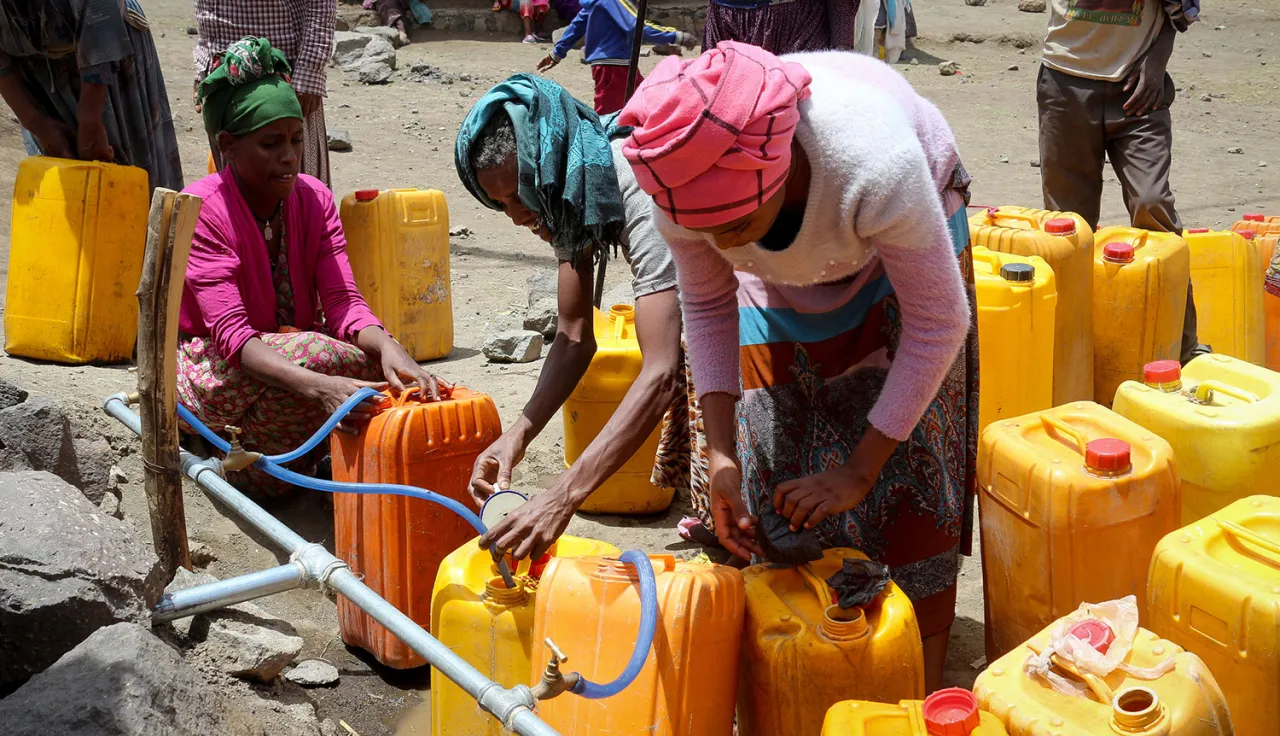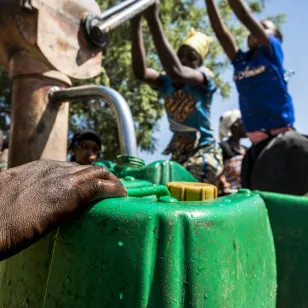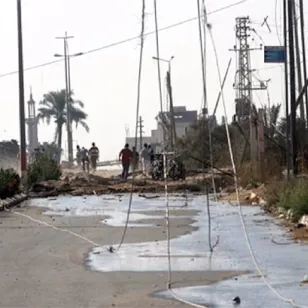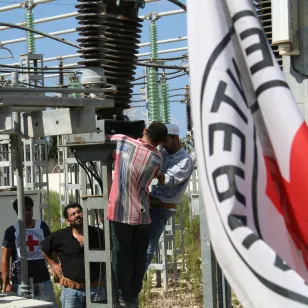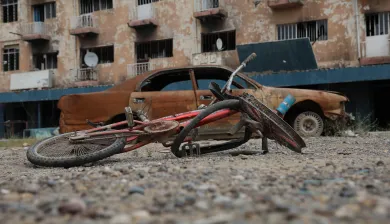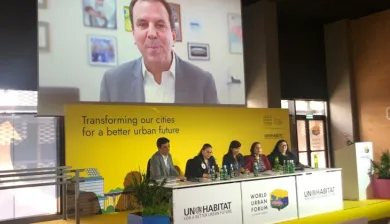As a neutral, independent and impartial humanitarian actor, the ICRC carries out building and engineering projects to relieve suffering by working to ensure that people caught up in armed conflict have access to clean water, shelter and other essential services for a safe and healthy living environment. On both sides of the front line, we restore services such as water supply, sanitation and power, and renovate public infrastructure that has been damaged as a direct, indirect or cumulative result of conflict.
We deliver safe drinking water
In areas where sanitation has been destroyed, we provide water services directly to communities – often in emergencies.
We help repair water infrastructure
Where infrastructure such as water treatment plants, water distribution systems, wells or boreholes has been destroyed or damaged, we work with local authorities and partners to repair it.
We assess existing essential services
We help authorities and communities understand the level of essential services that they have so that, where necessary, meaningful action can be decided on and designed jointly by our engineers, other experts and local authorities.
We build and renovate facilities
In areas of growing and unplanned urbanization, public services are often inadequate, if they exist at all. Essential public infrastructure, such as roads and hospitals, is not properly maintained. We repair and build public facilities and centres for housing internally displaced people in rapidly urbanized areas.
We set up emergency shelter and facilities in conflict-stricken communities and for people on the move
We provide emergency shelter and install and renovate water distribution points in displacement camps, along migration routes, within host communities and for people under siege.
We work towards better services for detainees
We help authorities to understand infrastructure-related failures in their penitentiary systems, and accompany them in the process of finding meaningful solutions that can lead to improvements in detainees’ living conditions.
We promote respect for the environment
Our engineers use energy-saving and eco-friendly tools and techniques and take into account the impact and long-term consequences of our projects on the environment, without delaying or compromising assistance for conflict victims.
We remind parties to conflict of their responsibilities
We work to educate and remind parties on both sides of a conflict that under the law of war they must never attack infrastructure essential to human survival.

